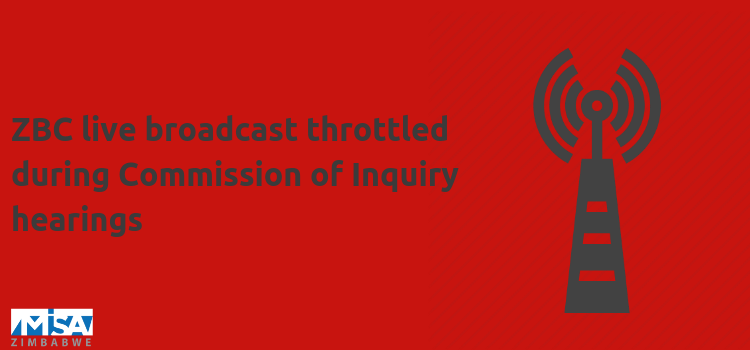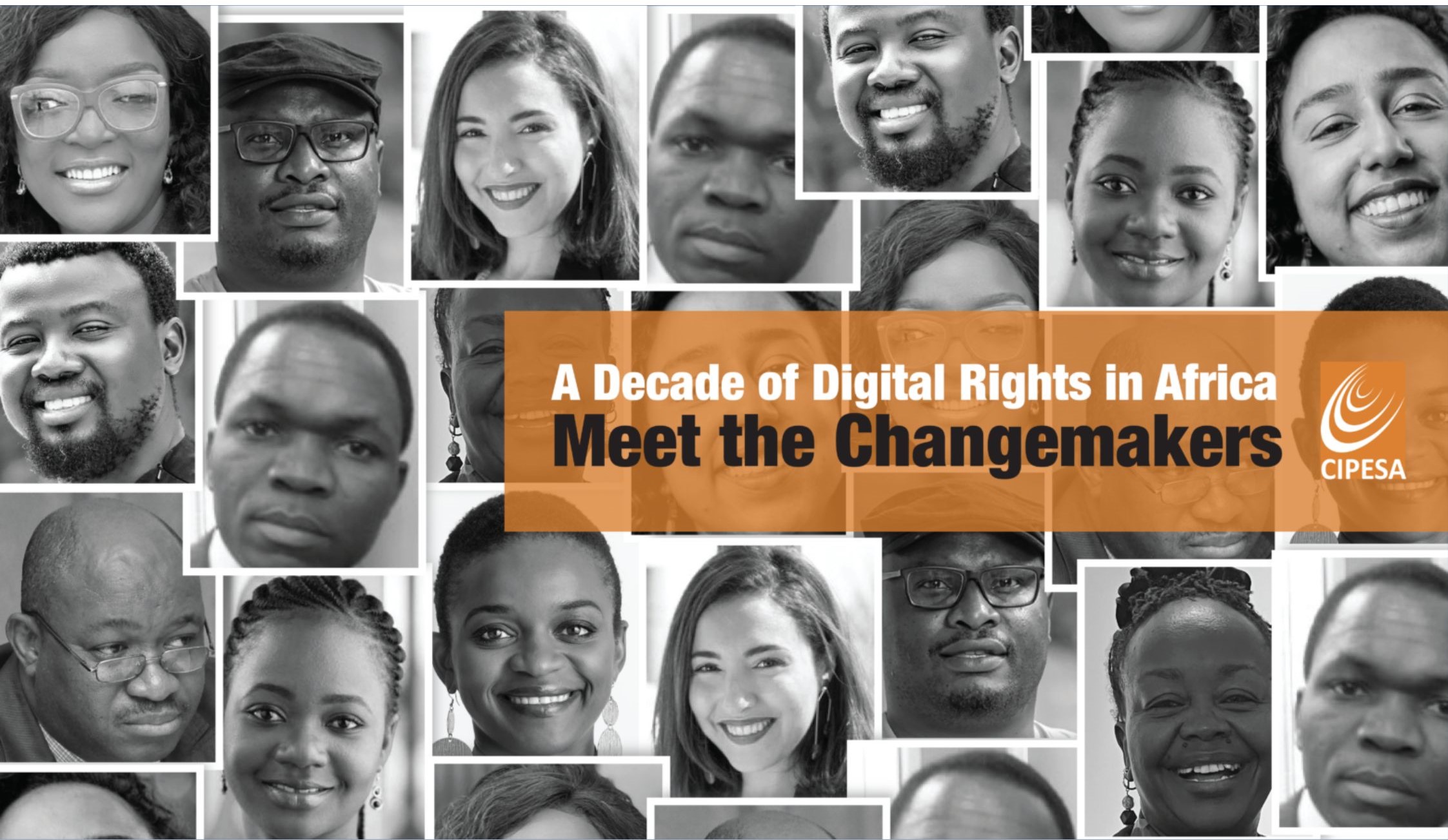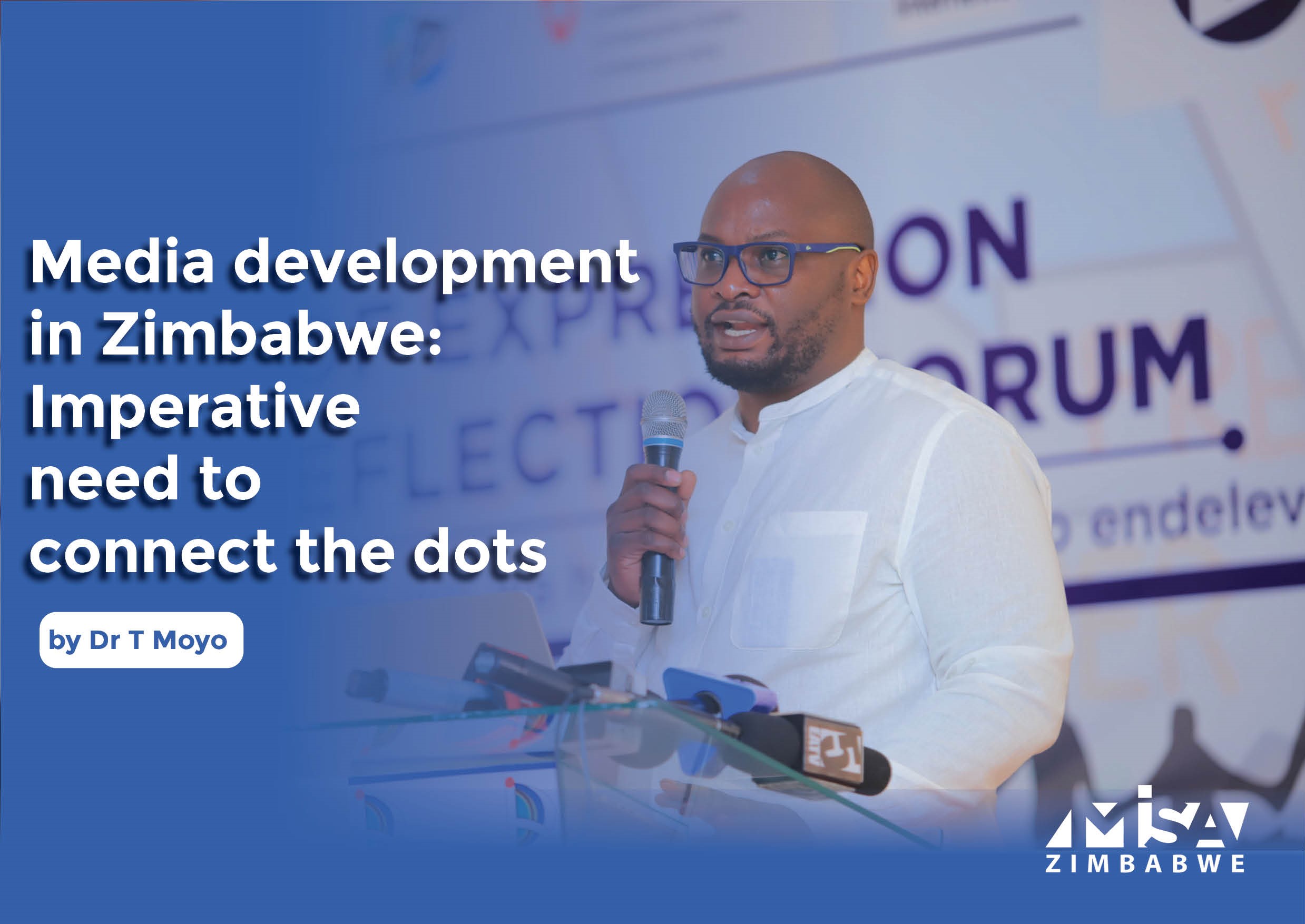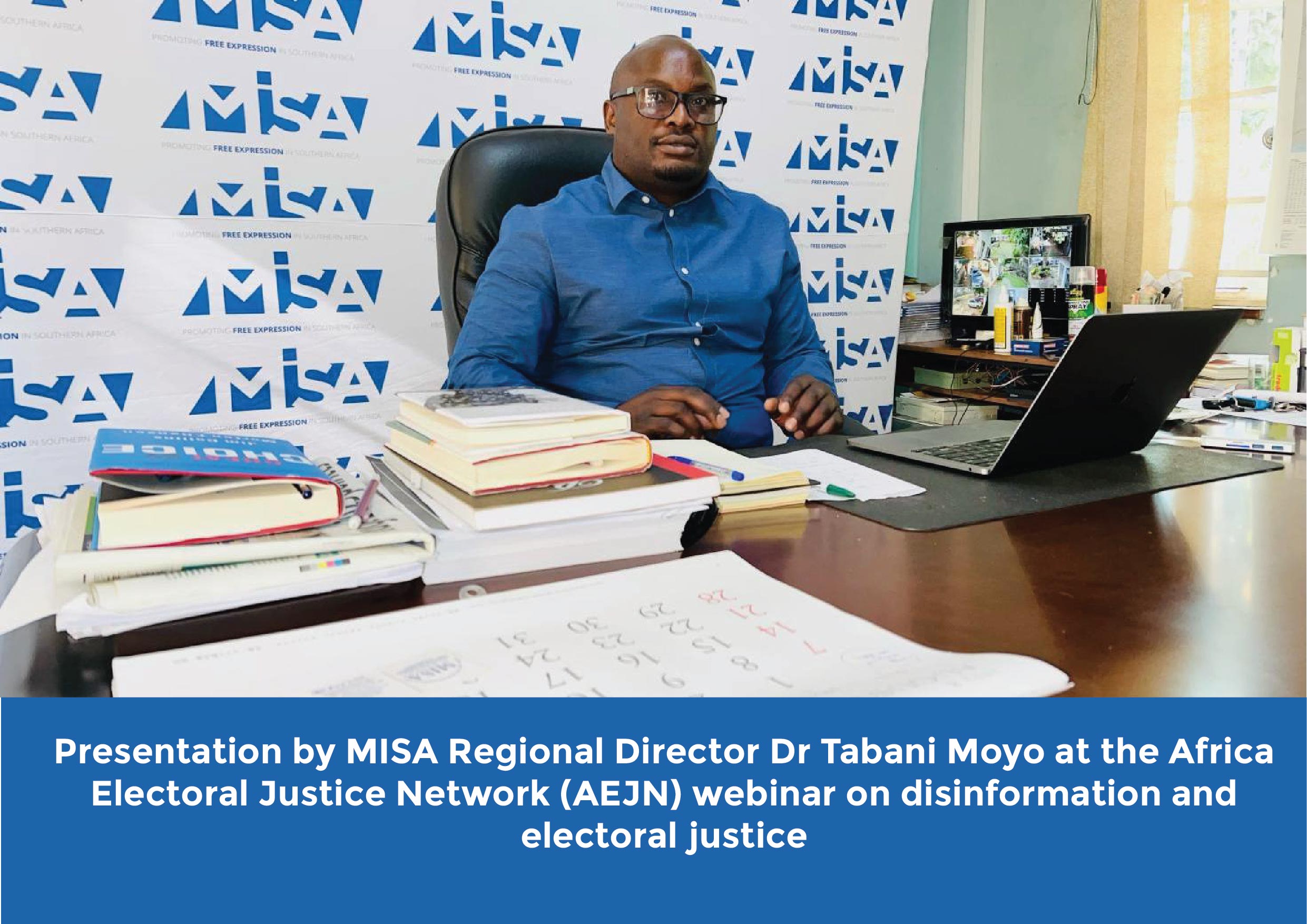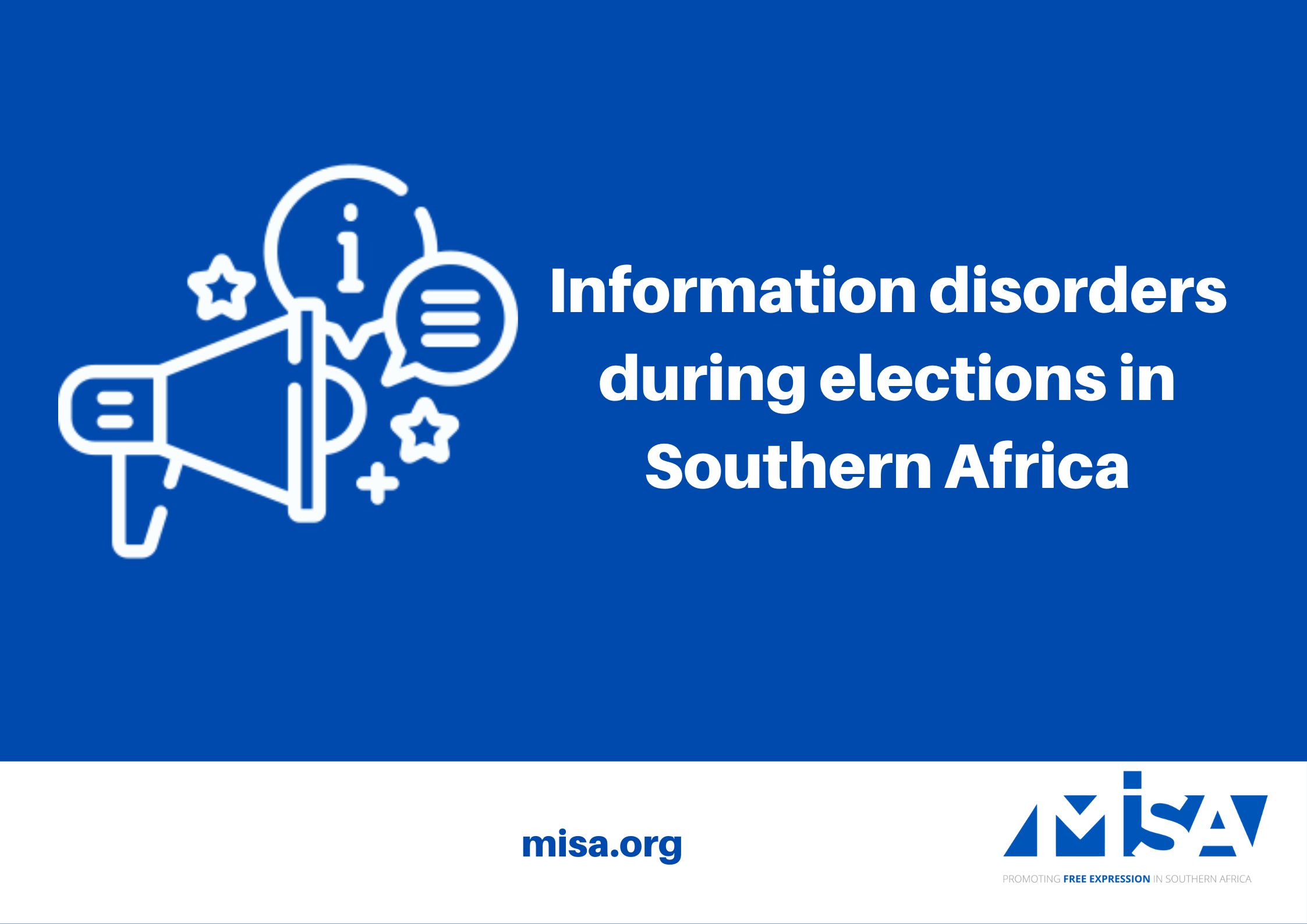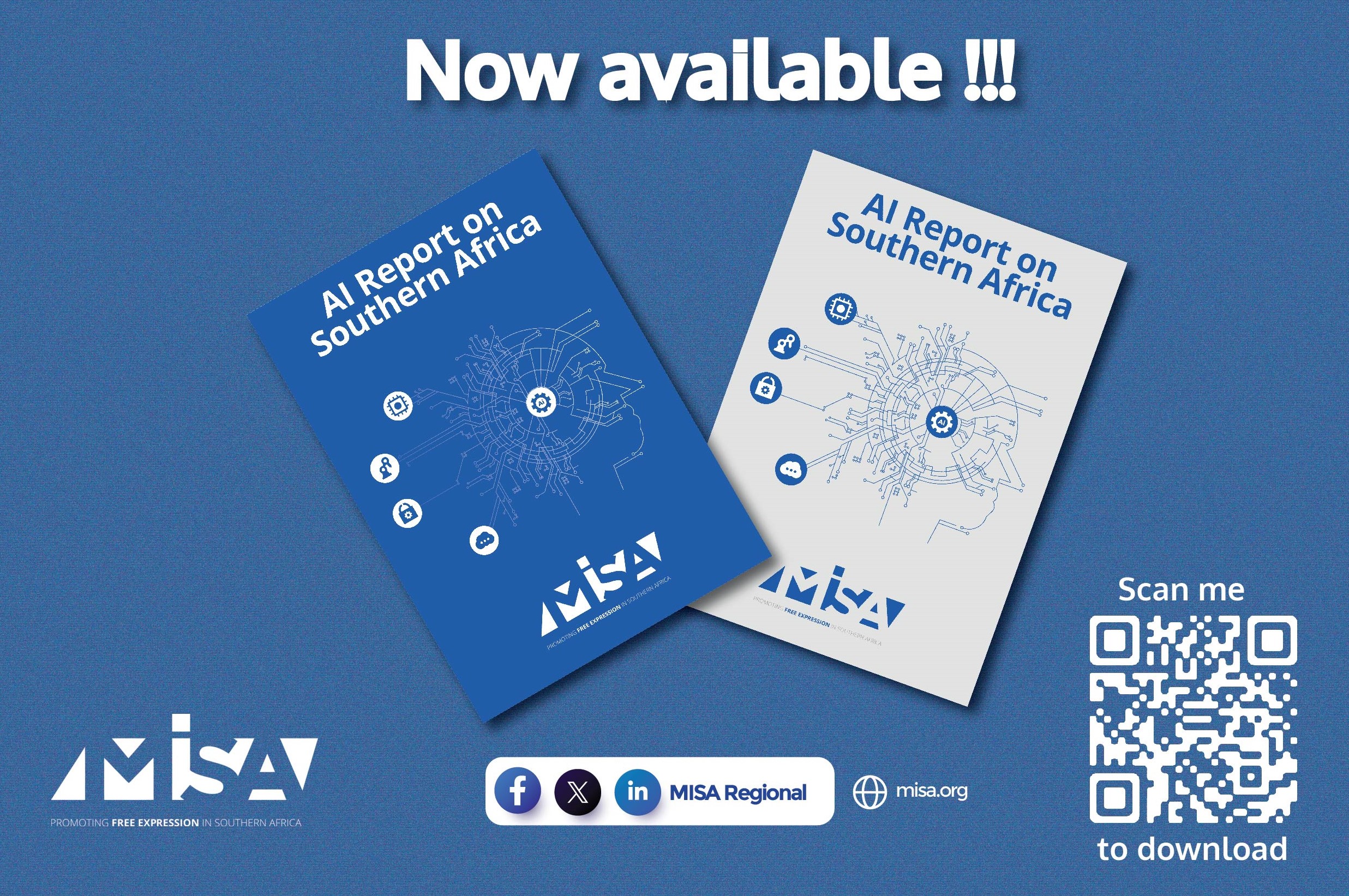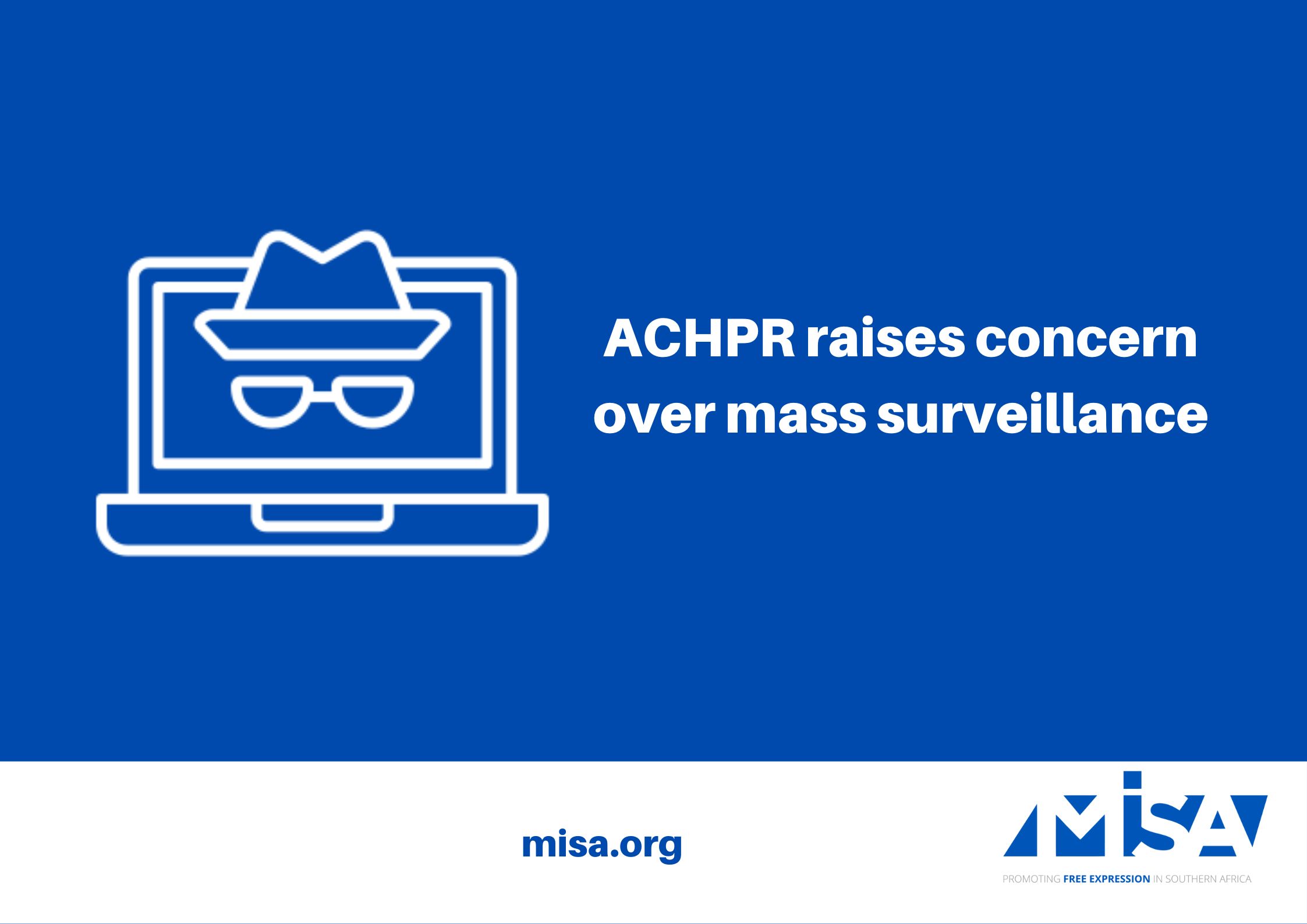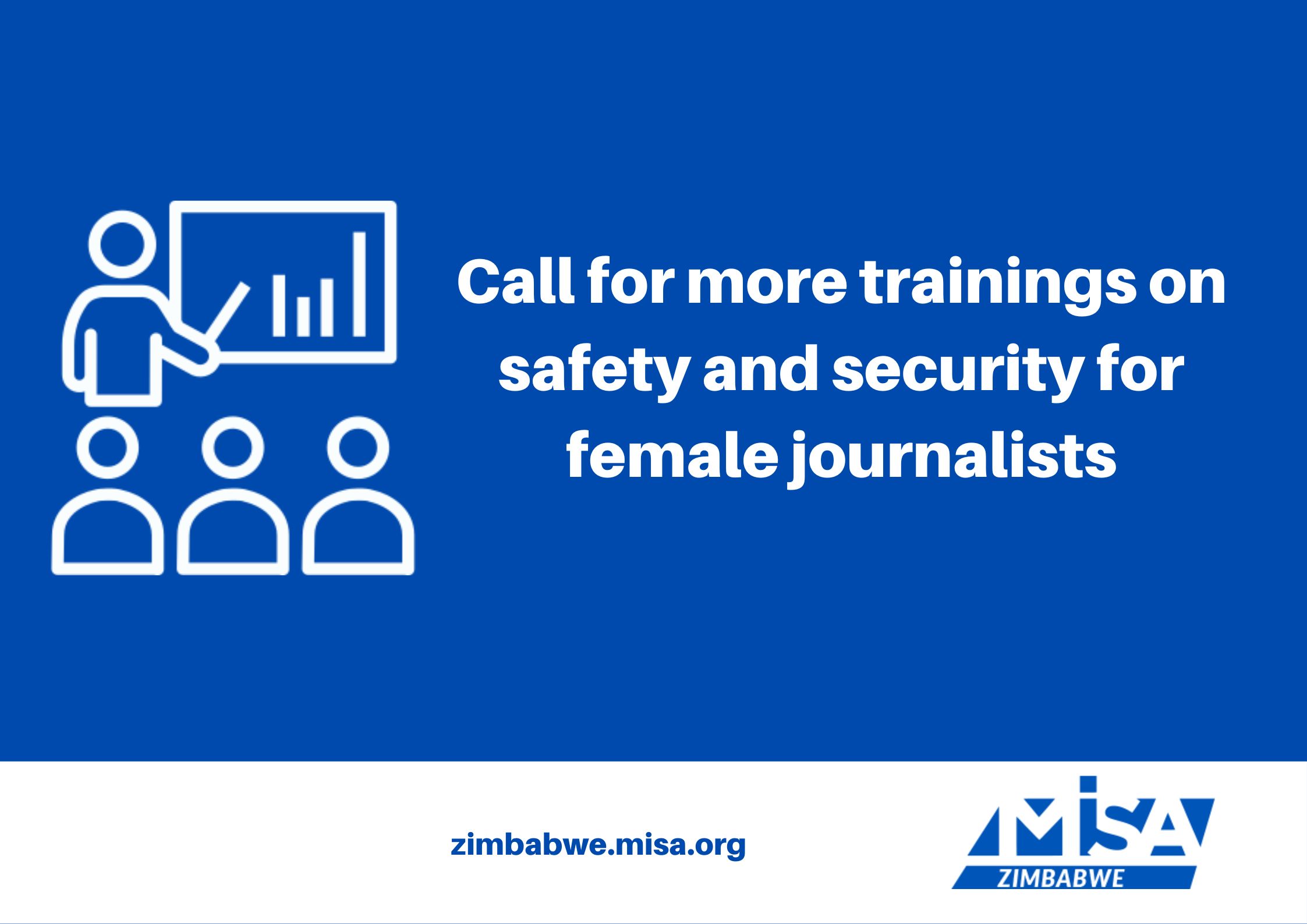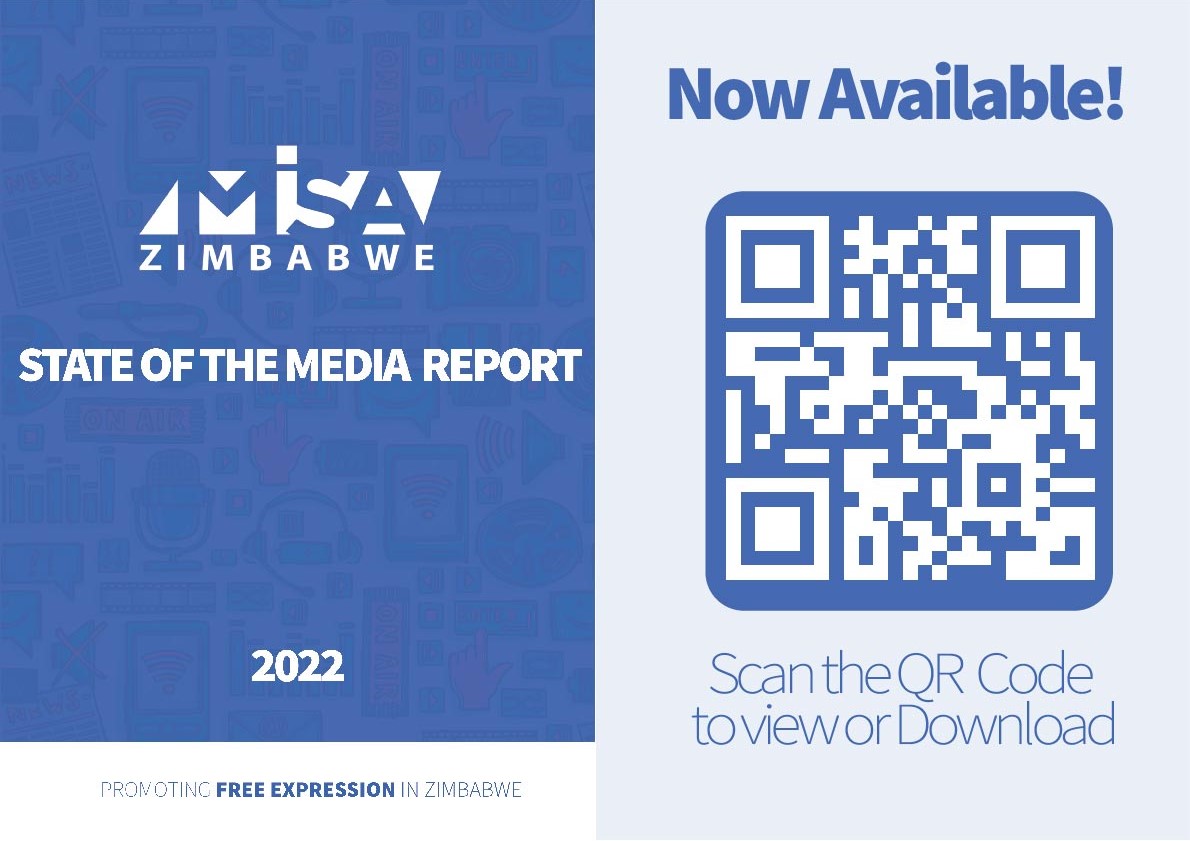Zimbabwe Broadcasting Corporation’s live television broadcast went offline on two separate occasions while MDC Alliance leaders gave their respective testimonies to the Commission of Inquiry into the 1 August 2018 killings.
There was no clear explanation given for the downtime experienced during the party’s deputy chairperson Tendai Biti’s testimony as well as during testimony by MDC Alliance president Nelson Chamisa. During both blackouts, which took place on the afternoon and evening of 26 November respectively, the ZBC livestream on their Facebook channel was up and running.
MISA Zimbabwe Position
MISA Zimbabwe takes this opportunity to comprehensively make broader recommendations to ZBC on improving its content, accountability to the public and safeguarding its independence; and guided by its Model Public Broadcasting Framework and the African Charter on Broadcasting, MISA-Zimbabwe calls for the following in transforming ZBC:
Purpose: ZBC must in practice be an independent body corporate, established to serve the overall public interest without interference from any quarter. In its bid to provide broadcasting services, it should ensure full respect for freedom of expression, promote the free flow of information and ideas, assist people to make informed decisions and facilitate and strengthen democracy.
Mandate: As part of its mandate, ZBC should among other key issues:
- Provide universal access to its services with its signal seeking to reach all corners of the country and ensuring and making services available in all the official languages of the country.
- Provide access to a wide range of information and ideas from the various sectors of society and reflect, as comprehensively as possible, the range of opinions on matters of public interest and of social, political, philosophical, religious, scientific and artistic trends;
- Report on news and current affairs in a way that is not influenced by political, commercial, or other special interests.
- Contribute to economic, social, and cultural development in the country by providing a credible forum for democratic debate on how to meet common challenges.
- Provide credible, quality and varied programming for all interests, those of the general public as well as minority audiences, children, women, the youth and the disabled, irrespective of religious beliefs, political persuasion, culture, race and gender;
- Promote and develop local content.
Some of these responsibilities are clearly outlined in the Broadcasting Services Act’s Part 1 of the Seventh Schedule outlining programming requirements for public broadcasters. ZBC should thus uphold the law.
This statutory role was emphasised by Deputy Chief Justice Luke Malaba, as he then was, in the matter of Majome v Zimbabwe Broadcasting Corporation (CCZ14/16) when he said:
“… the public broadcaster is required to act in an independent and unbiased manner in the selection and presentation of television and radio programmes. There is a provision prohibiting the ZBC as a public broadcaster from acting in a manner that favours the viewpoints of one political party whilst shutting out, as a matter of policy, viewpoints of other political parties on matters of national interest.”
Independence: ZBC should have in place policies to ensure its protection from any form of outside interference or attempts to compromise its independence. This is particularly so in matters concerning the content of its output, its editorial policy, the times and manner in which its output is supplied and in the management of all of its other affairs.
Over the years, the monitoring of the public broadcaster by MISA Zimbabwe and other media freedom lobby groups has indicated its lack of editorial independence, partisan coverage or complete censorship of national events, in violation of the broadcasting law in particular part 1(d) of the Seventh Schedule.
It compels ZBC to “provide news and public affairs programming which meets the highest standards of journalism, and which is fair and unbiased and independent from government, commercial or other interests.”
Governance: The governance of ZBC should be vested in a board of governors accountable to the public through parliament. The appointment process must be transparent and open and ensure participation by the public in the nomination of candidates.
The members of the board, when viewed collectively, should be persons who:
(a) represent a broad cross-section of the population of the country
(b) are suited to serve on the board by virtue of their qualifications, expertise and experience in the fields of broadcasting policy and technology, broadcasting regulation, media law, business practice and finance, marketing, journalism, entertainment and education, social and labour issues
(c) are committed to fairness, freedom of expression, the right of the public to be informed, and openness and accountability on the part of those holding public office
(d) are committed to the objectives and principles of the public broadcaster
Persons who are office bearers with the state or political parties or have business interests in the media industry should not be eligible for board membership.
To ensure participation of the public in and transparency of the appointment process:
(a) the parliamentary committee responsible for the broadcasting policy shall advertise the posts, call upon all relevant groups in society as well as individuals to nominate candidates, shortlist nominees and invite them for interviews in public hearings
(b) an appointment panel of public as well as civil society representatives shall assist in the process of selecting members of the board
(c) parliament should strive to reach consensus in order to appoint a board that is not partisan and avoid abuse of majority of one party
The governance of ZBC falls way far short when measured against most of these parameters as the current board appointment process is politically compromised and lacks full public participation.
Public Complaints mechanism In order to attend to such developments, Section 40 of the broadcasting law establishes a public complaints mechanism members of the public can use to raise their grievances with the broadcaster, it is important that ZBC publicises and adheres to its code of conduct. This will restore the public’s confidence in the broadcaster as a credible, ethical and professional source of information.
On the basis of its code, a public complaints unit, set up by the broadcaster, known and accessible to the public, should consider and resolve any complaints by members of the public against ZBC.
Most importantly, ZBC should be seen to comply with the findings of the complaints unit in order to inspire public confidence in the use of the complaints mechanism to address the broadcaster’s shortcomings.
MISA Zimbabwe also reminds media practitioners to employ the profession’s safety and security measures while covering hostile situations. Media practitioners are advised to also utilise the MISA JournoSOS App as well as the MISA Panic Button App in the event of any violations. MISA Zimbabwe staff is also on standby to assist media practitioners injured or arrested in the line of duty. The MISA Hotline is 0784 437 338.
//END
MISA Statement




